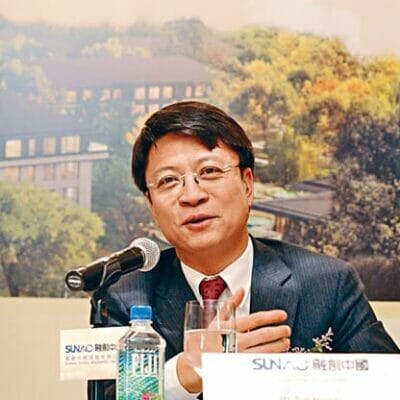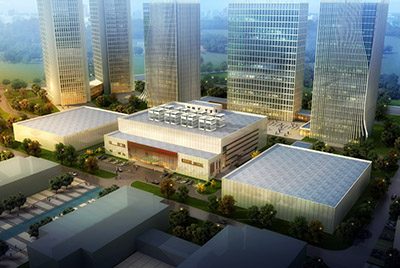
Sunac chairman Sun Hongbin may finally have something to smile about with this $2.1B deal
Sunac China has agreed to buy substantial stakes in 42 real estate projects from investment firm Legend Holdings for RMB 13.7 billion ($2.1 billion) as the developer controlled by tycoon Sun Hongbin takes another swing at joining the big leagues of the mainland property industry.
The Tianjin-based developer announced the acquisition of majority stakes in 35 companies, and minority shareholdings in five more companies in a statement to the Hong Kong stock exchange that was posted late on Sunday. Sunac acquired a 50 percent stake in an additional firm.
Sunac Now Has 7.3M SQM to Sell
The companies acquired are scattered across a range of second tier cities in China, including Yantai in Shandong province, Hangzhou in Zhejiang and Dalian in Liaoning province, but there are also projects in Beijing.
In total the acquisition, which was agreed to on September 16th, involves 6.9 million square metres (74.27 million square feet) of land, allowing for construction of over 18 million square metres of space. With Legend Holdings already having begun sales on many of the projects, only some 7.3 million square metres currently remains unsold. Several of the projects appear to be industrial parks, including one company incorporated as a cloud computing centre, and most of the acquisitions were made from Legend’s Raycom high tech manufacturing subsidiary.
Looking for a Place in the Big Leagues

As part of the deal Sunac now owns 100% of this cloud computing centre in Daqing, Heilongjiang
Sunac, which started out as a local developer in Tianjin has been striving to join the top tier of China’s national-level developers in recent years, including two frustrated attempts to acquire rivals over the last two years.
During the 2013-2014 property slide Sunac attempted to acquire Hangzhou-based rival Greentown China Holdings, only to have Greentown boss Song Weiping backtrack on an agreement to sell 24 percent of his company to Sun for HK$6.298 billion.
In 2015 Sunac pounced on troubled developer Kaisa Holdings when the Shenzhen-based company was squeezed into default by regulatory hassles with the local government, agreeing to purchase a 49 percent stake in the troubled developer as it came under mounting financial pressure in February of last year.
However, the Kaisa deal fell apart once the local government released a freeze on the Shenzhen company’s sales, and Sun’s shortcut to joining China’s top developers was blocked once again.
Since then, Sunac has continued to make opportunistic acquisitions of projects, including agreeing in late July to buy seven developments in six Chinese cities from Hong Kong-based competitor Top Spring International Holdings for RMB 4.4 billion ($663 billion).
Industrial Upside Could be Limited
Now with 18 million square metres of new projects in its portfolio Sunac is now substantially larger than it was a week ago. However, if these projects consist largely of industrial land, as it appears, the potentially profitability could be blunted by the continuing manufacturing slowdown on the mainland. One of the projects acquired in the transaction is a 30,000 square metre cloud computing centre to be built in the third-tier city of Daqing, in northeastern China’s Heilongjiang province. Once the deal is closed, Sunac will own 100 percent of the facility which broke ground in August 2013.
With China’s government emphasising a shift to a service-based economy, and production costs rising on the mainland, the PMI – a measure of manufacturer confidence – plunged 3.2 percentage points last month. If Sun’s new sites are predominantly industrial in nature, and given the challenges involved in converting industrial land for other purposes, the potential upside of this acquisition by Sunac could be limited, despite the size of the deal.
Leave a Reply